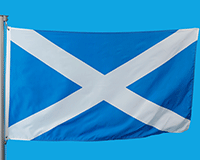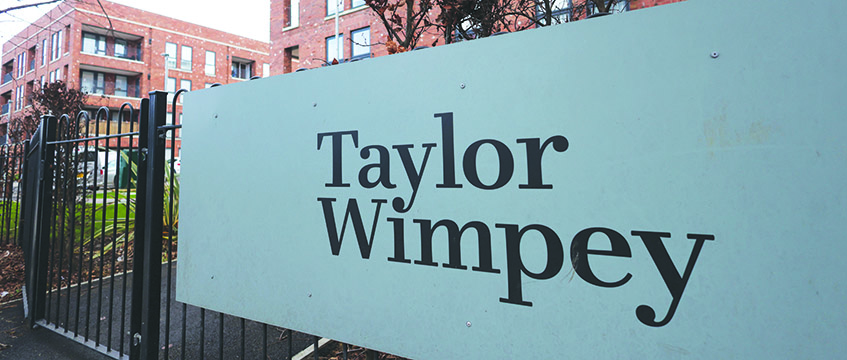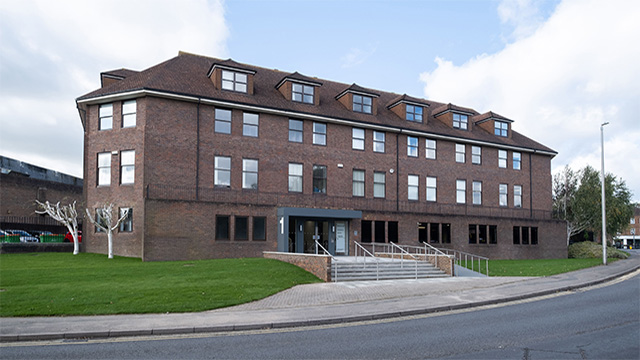Investors hit the pause button in the run-up to the referendum. Data from the Registers of Scotland shows that in the second quarter of 2014 the total value of commercial property sales dropped to £592m from its first quarter total of £841m, reflecting market uncertainty.
The silver lining of the referendum is that it has firmly put Scotland on the international map.
“Whatever people think about the property sector, the referendum’s been good for Scotland in that it’s engaged so many people,” says Derek MacKay MSP, minister for local government and planning.
Investors hit the pause button in the run-up to the referendum. Data from the Registers of Scotland shows that in the second quarter of 2014 the total value of commercial property sales dropped to £592m from its first quarter total of £841m, reflecting market uncertainty.
The silver lining of the referendum is that it has firmly put Scotland on the international map.
“Whatever people think about the property sector, the referendum’s been good for Scotland in that it’s engaged so many people,” says Derek MacKay MSP, minister for local government and planning.
And investors are now showing willing to return. In the days following the vote UK REIT Redefine International splashed £25m on the 138-bedroom Doubletree by Hilton hotel in Edinburgh city centre.
Another reflection of the attractiveness of the market is the upcoming sale of the Scottish Widow HQ in Edinburgh. It was first reported that its 200,000 sq ft Port Hamilton office building at 69 Morrison Street would hit the market for £90m back in April. After disappearing from the market during the referendum daze, it is now back for around £110m.
It would appear that it is not simply back to business, but that business can expect a turbo charge during Q4 in light of recent market activity.
“Scotland can capitalise on the best of both worlds,” says Miller Mathieson, executive director of capital markets at CBRE Edinburgh. “We are in a win-win situation now and it is down to how the Scottish government utilise that.”
Having negotiated the political turbulence that came with the referendum, the Scottish government must now focus on stability to attract continuing and new levels of investment. The referendum needs to be put in the past.
“The biggest risk is the risk of another referendum,” says Gerry Ferguson, head of UK Pooled Funds, Aberdeen Asset Management. “Having gone through that, I think we’d like to have a period of stability.”
As long as Scotland steers clear of a ‘never-endum’, there will be an active Q4 on the horizon.
“The numbers are coming through already,” says Ferguson. “We will see continued strong investment demand.”
The Scottish market is already attracting foreign investment. Deutsche Asset and Wealth Management has completed the purchase of Bam’s CONNECT110NS development as 110 Queen Street, Glasgow city centre for £70m.
What the statistics and sentiment from the referendum reveal is that the market needs certainty. The country needs to put the referendum behind it, and continue to be pro-active in order to make the most of upcoming opportunities.
The replacement of stamp duty with a new land and buildings transaction tax in April 2015, which is designed to remove distortions in house prices, could change the motivations of residential investors.
If the rates are fair, then it could mean that the new system is better than South of the border, attracting more investment. However, there is a risk that the government could use rates as a revenue-raising opportunity.
“That would send a negative signal to the markets and investors,” says David Melhuish, director of the Scottish Property Federation. “That is something we need to avoid.”
The biggest risk ahead for Scotland, says CBRE’s Mathieson, is not Scotland itself but UK-wide risks over the next 18 months.
“All the politics is getting in the way of what is an economic upward curve, and we need that improvement to continue.”
In particular Scotland should try to avoid any conflict south of the border associated with the general election in May.
“While we would expect a traditional surge in activity in the autumn, this may be tempered slightly as the UK general election creeps closer,” says the SPF’s Melhuish. “This could potentially provide more UK-wide political uncertainty.”
“We need to remain focused on the positive attributes of Scotland and build on those values and the economic potential that we have,” adds MacKay. “We must not see the referendum as a bad era. The inherent strength of the economy is there and we must build on them and be positive.”
amber.rolt@estatesgazette.com











